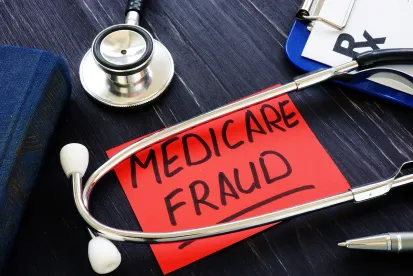On Monday, March 23, 2020, the Office of Inspector General of the US Department of Health and Human Services (OIG) issued a Fraud Alert concerning emerging fraud schemes related to the COVID-19 pandemic. In this Fraud Alert, the government identifies a number of scams being perpetrated against the public and about which we should all remain vigilant. These fraud schemes include the following:
-
The sale of bogus coronavirus test kits to Medicare beneficiaries to obtain recipients’ personal information (including their Medicare beneficiary identification number). This is a form of identity theft, and the government stresses that the sorts of services being offered are “unapproved and illegitimate.” The scammers want access to victims’ personal information in order to fraudulently bill Medicare and Medicaid.
-
The sale of coronavirus supplies to obtain personal information that may be used to perpetrate additional fraud schemes. As with other potential scams, you should be wary of unsolicited requests for your personal information — including your health insurance beneficiary number and Social Security number. You should also be suspicious of unexpected calls or visitors to your home offering coronavirus tests, supplies, or other materials.
-
The use of telemarketing calls, social media, and door-to-door visits to attempt to obtain money or personal information. The OIG also recommends that you be very skeptical of advertisements for coronavirus testing and treatment on Facebook and other social media sites. All coronavirus testing and treatment should be managed and approved by a hospital or a physician or other trusted healthcare professional.
-
Other potential fraud schemes. Although this is not specifically covered in the Fraud Alert, if and when the federal government approves stimulus payments to the American public, there will also certainly be criminals who will seek to defraud recipients of those funds. For example, be mindful that the government will not contact you and ask you for your bank account information or Social Security number in order to award coronavirus stimulus payments. There may also be fake “charities” soliciting “contributions”. If someone calls and asks for bank account information or personal information to confirm eligibility for a government payment, to issue a government payment, or to request a charitable donation, the best course of action is to ask for the caller’s name, title, and call-back number and then contact the local field office for the Federal Bureau of Investigation (FBI) or the National Center for Disaster Fraud Hotline (1 866.720.5721 or disaster@leo.gov) to determine whether the request is legitimate.
Additionally, the FBI has issued a separate public service announcement concerning coronavirus fraud. Citing the same concerns for identity theft and larceny, the FBI has also advised that the public remain vigilant for the following:
-
Fake emails purporting to be from the Centers for Disease Control and Prevention (CDC) or other similar organizations, claiming to provide important information about coronavirus. Often these emails contain links and direct recipients to click on a hyperlink to obtain specific details. However, these links may deploy malware or other viruses to the recipient’s computer in order to steal personal information or compel ransom payments to unlock the devices. It is important to note that legitimate government websites end with “.gov” and not “.com” or “.org” or some other country’s national domain name. The government warns that we should always check for misspellings in web addresses, which may indicate that an address is not legitimate.
-
Phishing emails that ask recipients to verify personal information (and ultimately steal that information). These unsolicited emails will masquerade as well-meaning efforts to help ensure the timely receipt of government stimulus checks, financial relief, airline refunds, and even fake cures, testing kits, and vaccines. As a general rule, the FBI has advised that we should never provide information like usernames, passwords, dates of birth, Social Security numbers, financial data (such as bank account numbers or credit card numbers), or other personal information in response to an unsolicited email or robocall.
-
The sale of counterfeit medical treatments or equipment. These sorts of scams may offer unapproved or counterfeit products such as hand sanitizer, personal protective equipment, respirator masks, and gloves. Both the CDC and the Food and Drug Administration have information on unapproved and counterfeit products on their respective websites (www.cdc.gov/niosh and www.fda.gov).




 />i
/>i

